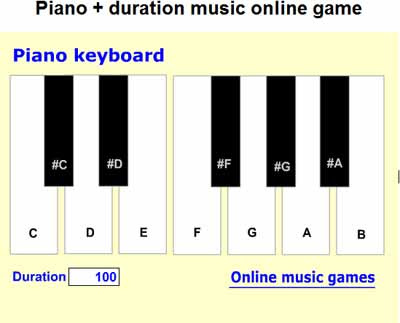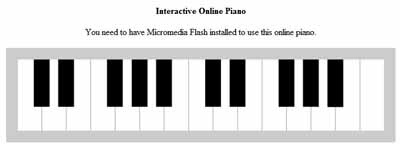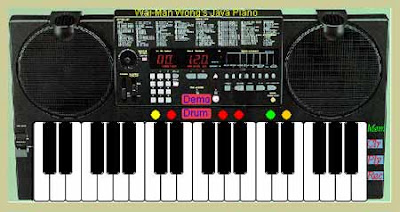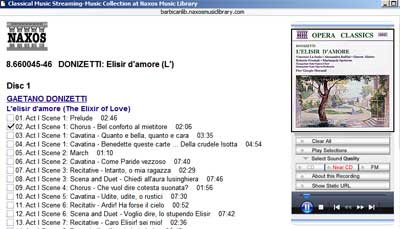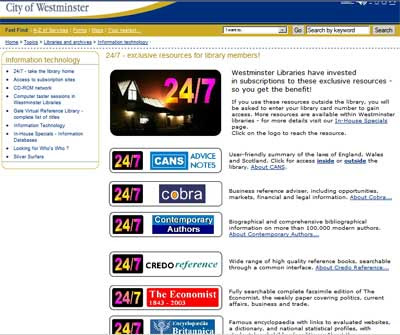Is it now safe to include music in videos you upload to
Google's
YouTube? I don't mean uploading a commercial music video to YouTube. I mean
using music in your
own videos - e.g. playing a track as background music for your video or short film, or recording a video of someone who's singing or playing music themselves, or just lip-synching to the playback of a commercial music recording.
The answer isn't in fact straightforward, if like me you want to try your best to stay strictly legal (that didn't stop the
BBC from getting YouTube to delete the BBC iPlayer videos I'd put up for
my iPlayer preview, their first YouTube
DMCA take-down ever, but
that's a different story and it seems to have been confidentiality concerns rather than copyright which drove that). Intellectual property rights such as copyright are complicated, there are many strands to copyright, and it's different in different countries, so it's often difficult to work out how the global aspects of the internet affect things. I don't profess to be a copyright expert and as they say this post isn't legal or even practical advice - just a summary of my personal investigations and views based on the position in the UK (for more, please see my
detailed outline of what UK music copyright is, how it works, etc).
What music copyright permissions are needed? The ABCs
To copy, publicly perform or broadcast music, you may need
several types of permissions (and remember "copying" music includes adding it to your video or uploading it, while "broadcasting" includes download or streaming over the Net, e.g. podcast or video as well as TV and radio transmissions). In the UK, you could be done for copyright infringement even if you didn't
know what you were doing was a breach of copyright, and even if you didn't mean to violate anyone's copyright.
You might need authorisation or licence from more than one person, because several people could be involved:
A. the
composer or songwriter who wrote the music - they own the
copyright in the music and lyrics
B. if you play or use someone else's recording e.g. a CD or MP3 or iTunes track, the
artists who sang or played on the recording - they have
performers' rights in their performances
C. if you play or use someone else's recording, the
producer of the recording - they own the
copyright in
that particular sound recording (which is
separate from the songwriter's copyright in the
song), usually this is the
record company.
If you make
your own recording or video of yourself singing or playing a song (or of someone else doing that, e.g. a friend, and you have their permission to record and broadcast their rendition), then you only need A - permission from the songwriter. If the song is out of copyright (also known as "in the
public domain"), you don't even need that.
If you use an
existing recording in the soundtrack of your video, even if someone is lip-synching to it but you can hear the commercial recording being played, that's a copyright infringement ("making available" the recording) and you need A, B
and C. In other words, C ain't enough to make it legal if you don't get A and B
too.
What permissions has YouTube got?
Looking at the raft of permissions which are theoretically needed to use or incorporate music in a video, let's now go back to the position of YouTube and videos on YouTube.
Record companies - C
We know that YouTube have done deals with lots of record companies to let YouTube users include recordings in their YouTube videos -
with Warner Music Group in September 2006,
with Sony BMG Music Entertainment and
Universal Music Group (UMG) in October 2006, and
EMI Music in May 2007.
That's C. Permission from the record companies, sorted (but only kind of - I'll come back to that later).
But what about A and B?
Composers - A
At the end of August 2007, YouTube did a deal with the UK's
MCPS-PRS Alliance (see
Alliance press release and
note for members). The Alliance represents composers and music publishers in the UK: 50,000 members, 10 million songs. YouTube will pay the Alliance when their members' "creative talents are being enjoyed on YouTube's service across the UK". (And the Alliance should then pass on payments to their members, but how isn't clear. Various news reports say YouTube will pay the Alliance a flat fee but I won't go further into the financial terms of that deal here, as they're not the main focus of this post: the Alliance press office told A Consuming Experience that "The terms of the deal and all matters relating to the financial aspects of the deal are confidential, anything that has been written about that relates to finances is basically journalists speculating." Similarly, I won't even try to guess how the payment will be distributed amongst members!)
Does the YouTube deal with the Alliance mean A, permission from songwriters, sorted?
Well, not necessarily. Societies like the Alliance - called
copyright collectives, copyright collecting societies or collecting agencies because they handle requests for copyright permissions or licences for their members and the collection of royalty payments for them - are mostly only national in scope, organised
by country.
The Alliance's territory is the UK; they only collect payment for public performances, airplay, downloads etc of their members' music that take place
in the UK. That's why the
Alliance press release on the YouTube deal talked about "the YouTube community
in the UK", and "YouTube's service
across the UK" (my emphasis). Their members of course will mostly be UK residents, too. So it would make sense that the Alliance press office told ACE, "All Alliance members' works uploaded on YouTube in the UK is licensed", and "Our agreement covers anything that is streamed into the UK i.e. royalties from clips watched by YouTube users in the UK."
Another gloss to add is that the collecting societies in different countries often have reciprocal agreements with each other. So e.g. U.S. songwriters may belong to a US collecting society, but if their music is played on UK radio the Alliance might collect royalty payments for them and pass it on the US society to pay to their members.
In the case of the YouTube Alliance deal,
Andrew Shaw the Alliance's Managing Director of Broadcast and Online told ACE that
the deal also covers YouTube video downloads in the UK that include music by composers outside the UK, where their societies have a reciprocal arrangement with the Alliance. In other words, if
non-UK songwriters' music is on a YouTube video and the video clip is played or watched by a UK user, YouTube will pay the Alliance for it, who will pass the payment on if they have an arrangement with the writer's collecting society. So it seems the deal doesn't just include Alliance members' music, but also other songwriters' music too - though for convenience I'll just call the lot "Alliance music". What I'm not sure is, does the deal cover all collecting societies that have reciprocal arrangements with the Alliance, period? Or only the ones that have specific arrangements with the Alliance especially in relation to the YouTube deal? I suspect the former, but I don't know.
No doubt you're now thinking, "Aha! What if a YouTube user
outside the UK views a video with Alliance music? Is that covered? And what about
uploads of videos by YouTube users outside the UK? Isn't an upload technically "copying", which needs permission too?" Well that's astute of you, but of course all ACE readers are astute.
Yep, you're absolutely right, you clever thing you - that's the international aspects of the Net insisting on creeping in to complicate matters. The
Alliance press release did mention "user uploads", and so did Andrew Shaw when I spoke with him. But user uploads
from which country? The Alliance press office told ACE, "The deal relates to content uploaded in the UK." But what about content uploaded in other countries? It could just be my (mis?) perception, but Mr Shaw was extremely non-committal on this point, which leads me to wonder whether that means that the Alliance YouTube deal doesn't, or just can't, cover downloads or uploads by users who live
outside the UK, because that's outside the Alliance's remit. The references in their press release to "in the UK" seem to suggest that too. The Alliance press office didn't comment further when I suggested "so it sounds like it will be legal for YouTube users anywhere to upload videos containing Alliance member-composed music as long as the clips are watched by YouTube users in the UK" - but I really wouldn't take silence as a "Yes". So I'm still uncertain about whether the Alliance licence to YouTube covers uploads of video clips with Alliance music by
non-UK YouTube users. I suspect not, because of the territorial issue.
There are other copyright collecting societies which handle licensing of rights and royalty collections outside the UK, sometimes more than one per country depending on the area (see the
Wikipedia list of collection societies, they even have a
category all to themselves). To complicate matters, a society in one country could mainly represent songwriters or performers from another country, in relation to their rights in the first country - e.g. the US
SESAC was originally formed to support the rights of under-represented
European artists in the
USA. For copyright-related matters in their countries, e.g. copying or uploading that takes place in their countries, wouldn't local collecting societies need to be involved too?
It certainly seems so - e.g. YouTube have a licence from the
BMI in the USA (but not other US collecting agencies like
ASCAP and
SESAC, at least not yet), according to
this 2006 article by Brian Garrity.
That article is well worth reading as it explains clearly the different aspects in the USA and the different rights and organisations which could be involved there. For instance, it seems from the article that music copyright in the USA is quite different from
music copyright in the UK, and similarly for the alphabet soup that is the world of the collecting societies. For instance, copyright collecting societies in the US seem to be referred to as "performing rights organizations" or
performance rights organisations, whereas in the
UK concept of performance rights is to do with the performance of, well, a
performer, e.g. a singer's singing, and is to do with their rights in their rendition, rather than copyright in a song as such. I confess that while I've just about got to grips with
the difference between the Alliance, the PPL and the VPL I've no clear idea yet about the differences between the BMI, ASCAP and SESAC or indeed the
NMPA, particularly the boundaries between them and what they do.
Mr Garrity also makes the point that YouTube may have got licences from record companies and the BMI, but strictly it still isn't completely legal to include certain music on YouTube until ASCAP and SESAC (etc?) are on board too. I've seen reports (e.g.
Royalty Week,
Associated Press and
FT) that YouTube has reached
interim settlements or interim licensing arrangements with US collecting societies, but it's not clear to me just
which ones, and whether they include ASCAP and SESAC.
Now I mentioned the NMPA earlier. In fact, YouTube
are currently being sued in the US for breach of music copyright by the
NMPA, e.g. see
this New York Post article. The NMPA or National Music Publishers' Association represents music publishers in the USA - but the BMI etc also represent publishers, which is why I say I still haven't got to the bottom of the US position yet. What is certainly clear from the lawsuit is that not all rights holders in the USA have agreed to license their music to YouTube.
So what it all boils down to is this:
UK video uploads and downloads which include Alliance music may now be legal (with the further twists I'll come to below), but the YouTube Alliance deal
doesn't mean that it's legal to upload or play those videos
outside the UK.
Here's another gotcha. Mr Shaw also told me that after the YouTube deal it will be legal for YouTube UK users to include Alliance music on the Alliance's "usual" licence terms, such as "non-derogatory" use only. Only YouTube and the Alliance know the exact details of their deal. That "non-derogatory" requirement wasn't announced in the press release, so how would we mere users have known that that non-derogatory use is a condition of the licence? Maybe I've not researched it fully enough, but the only Alliance licence I could find was their
online exploitation licence, so I'll take it as a typical example of their "usual" terms. Now that licence says in item 4.3 that the licence
doesn't extend to:
(a) the reproduction or communication to the public of any Commercial Work or part thereof in the form of a parody or burlesque of any Commercial Work or of any composer or writer of any Commercial Work or any band or other group of artists which includes any composer or writer of any Commercial Work; or
(b) the use of any Commercial Work in any context which the Licensee ought reasonably to consider as being likely to be insulting or detrimental to the composer featured on the commercially released sound recording of the music or the relevant Member or associated society member.
I'm guessing that that must be what Mr Shaw meant by "derogatory". In other words, that licence says that the licensee can use Alliance music as long as they don't do a parody or burlesque of the music or the songwriter etc, or use it in a way that's insulting etc to the composer. So it seems there's a hidden restriction to watch for: don't shoot the pianist, and certainly never
ever make fun of the songwriter!
As you can tell, the
only thing I'm halfway confident about at the moment is that YouTube users
who live in the UK can safely include Alliance music in their YouTube video uploads if they do it in a "non-derogatory" way (with the further twist I add below, yes there's more), and that the Alliance will get paid by YouTube when YouTube videos containing Alliance music are played by UK YouTube users.
Performers - B
Now I come to the twist. The eagle-eyed will have spotted that I haven't even got to B yet - musicians'
rights in their performances, i.e. their singing or playing. As I mentioned, in the UK this is
not the same as a songwriter's copyright in the song they perform, or the record company's copyright in the sound recording it makes of their performance.
If you or your friend sing or play Alliance music "live" on a YouTube video in the UK, that's fine. But what if you use a commercial recording of Alliance music with other people (like a pop star) singing or playing on the recording? YouTube may have a licence from the Alliance as far as the songwriter's copyright in the song is concerned, and from the major record labels in relation to their copyright in the sound recording - but what about the performers' rights in their performances?
In the UK, the
PPL is the collecting society which handles performers' rights
in sound recordings, i.e. when recorded tracks are broadcast or publicly performed in the UK, whether played in a club or restaurant or on the radio. (The
VPL deal with rights in commercial music video recordings, but that's another matter.)
You get my point now, don't you? Just as the picture in the US isn't complete without ASCAP and SESAC, if a UK YouTube user uploads a music video which includes Alliance music from a recording by a British artist, it's not legal unless the PPL have also given a licence to the YouTube. And they haven't, yet.
In fact the PPL are currently in negotiations with YouTube, but until that's sorted it strictly it isn't legal to include audio recordings with performances by PPL members in your YouTube video - even if you live in the UK, even if the music is composed by an Alliance member - UPDATE: unless the performers' rights have been transferred to the record companies which own the copyright in the recordings and have done deals with YouTube.That's why I'm with Brian Garrity rather than
Mashable,
who said "YouTube mavens no longer have to fear being sued for music being played in the background of their videos, or worry about their content being removed. At least for labels and artists by the MCPS-PRS Alliance". Or indeed the
Financial Times, who said the YouTube-Alliance deal would "legitimise the use of recorded music" on YouTube.
The Times reported that "videos using their
[Alliance members'] music as a soundtrack will no longer be infringing copyright", and even the
New York Times said the YouTube-Alliance deal allowed "tracks from performers like Cliff Richard and Amy Winehouse to be used in videos" (echoing
the Associated Press).
Reuters similarly said the deal "allows users of the Google site to incorporate recorded music legally into videos". All of them: sorry, but, being pedantic about it, wrong wrong
wrong. Brian Garrity (and me!): right. No PPL, no legitimacy in the UK, for the use of sound recordings anyway.
So B, performance rights - NOT sorted.
UPDATE: I am told that the standard practice, during the recording process, is for performers to transfer their performers' rights over to whoever has the copyright in the recording, normally the record companies, for the copyright owner to then exploit the performance / sound recording further, i.e. generate revenue from it.
The performers do retain certain rights in the sound recording with regards to "equitable remuneration" whereby they would receive compensation for the "broadcast and communication to the public" of those performances they were involved in.
However the "making available" of sound recordings, in services such as "on-demand" streaming of programmes, is
not included in the "broadcast and communication to the public" definition - and therefore performers don't get equitable remuneration for it, and would therefore not be directly involved in the licensing process for "on-demand" services.
So, in the case of YouTube videos incorporating background music, the rights that would be required would be:
- the publishing rights in the musical work, the song (which is licensed by MCPS-PRS-Alliance), and
- the rights in the sound recording itself - which would be licensed by the copyright-owning record company directly (the direct deals done between the major record labels and YouTube) and/or with PPL, who would represent those members that wished to be included in such a licensing deal.
PPL represents its record company members for the licensing of the rights those members hold in sound recordings, and therefore any deals that are done by PPL with "on-demand" services would be on behalf of record company members (rather than performers), on the basis of the usual practice of performers transferring their performers' rights to the record companies.
Ah c'mon, so is it legal to upload music with your YouTube video, or isn't it?
Where are we now, then, and are we there yet? Well, no.
In my personal view, at the moment you are 100% totally safe to add music to your YouTube video
only if:
- the music is out of copyright (the Public Domain Works' list of public domain composers is helpful, though not exactly typical YouTube fan fodder), or
- you or your friend sing or play the music yourself (rather than using a pre-recorded track) in a "non-derogatory" fashion, and:
- you're in the UK, and the music is by an Alliance member (or, possibly a member of an associated collecting society), or
- (maybe - this is pure guesswork so don't go by it, could someone in the know possibly confirm?) you're in the US, and the music is by a BMI member?
Let's get back to music recordings, e.g. CDs, where the copyright to the sound recording is owned by the record labels who have made deals with YouTube like Warner, Sony, Universal or EMI - all the biggies, really. They've licensed their recordings to YouTube haven't they, so shouldn't it be fine now to include their artists' tracks on your video at least?
Strictly, no - for two reasons.
One, remember the ABCs - it's got to be
all the ABCs, not just one. Authorization from the record companies, C, just isn't enough. As Mr Garrity pointe




